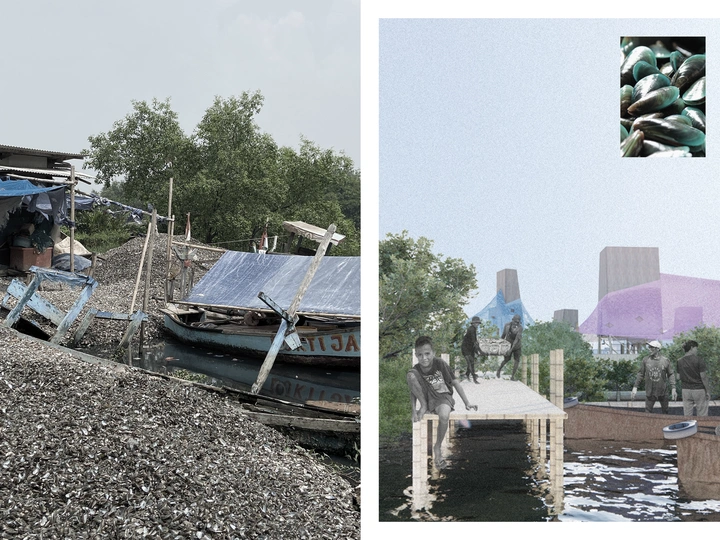The Mussels Have What It Takes To Keep Us Afloat

Kittan Ramadira Eimir Kodijat is a freelance spatial practitioner, designer, and architect whose interest in research-led design focuses on community, public spaces, and social issues through architecture and spatial design. In 2023, Kittan completed his MA in Interior and Spatial Design at Politecnico di Milano with his thesis project, 'The Mussels Have What It Takes to Keep Us Afloat'. In 2019, he graduated with a Bachelor degree in Architecture from the Catholic University of Parahyangan, Indonesia, and has worked in the fields of architecture, interior design, set design, and landscape spatial design.
Jakarta, Indonesia's capital city, has experienced significant urbanization into a sprawling metropolis on a global scale. The process of expansion has exerted significant pressure on crucial elements such as resources, infrastructure, and technology to serve the 11 million people residing in the capital. In this context, the urban growth of the city intersects with economically disadvantaged traditional fishing communities. Naturally, rural communities in urban contexts are confronted with instances of gentrification, displacement, and climate crises of constant coastal flooding.
In the present situation, Kampung Kerang Hijau, or the Green Mussel Village, located in Muara Angke, one of many informal villages situated in the coastal northern region of Jakarta, displays particular characteristics. The village’s daily harvest and production of traditional green mussels have been the driving force behind the local economy for generations. However, because of the lack of good service and waste management, this has resulted in tons of landfills for green mussel shells spreading around the area. Although the locals have discovered ways to reuse these green mussel shells, the 20+-year custom of residing among mounds of mussel shells has detrimental effects on social, cultural, economic, and health aspects of life.
This research proposal is to explore and document the distinctive coastal community residing in Green Mussel Village through spatial and service scope, focusing on the attentive and regular observation of the green mussel processing areas. An empowerment initiative, aiming to be a circular community, is put up as an approach within the traditional green mussel processing industry with the aim of attaining circularity, whereby community and underutilized resources are then focused on being utilized to improve the community, social capital, constant coastal flooding, and finding a possible solution towards landfills of green mussel shells in the village.